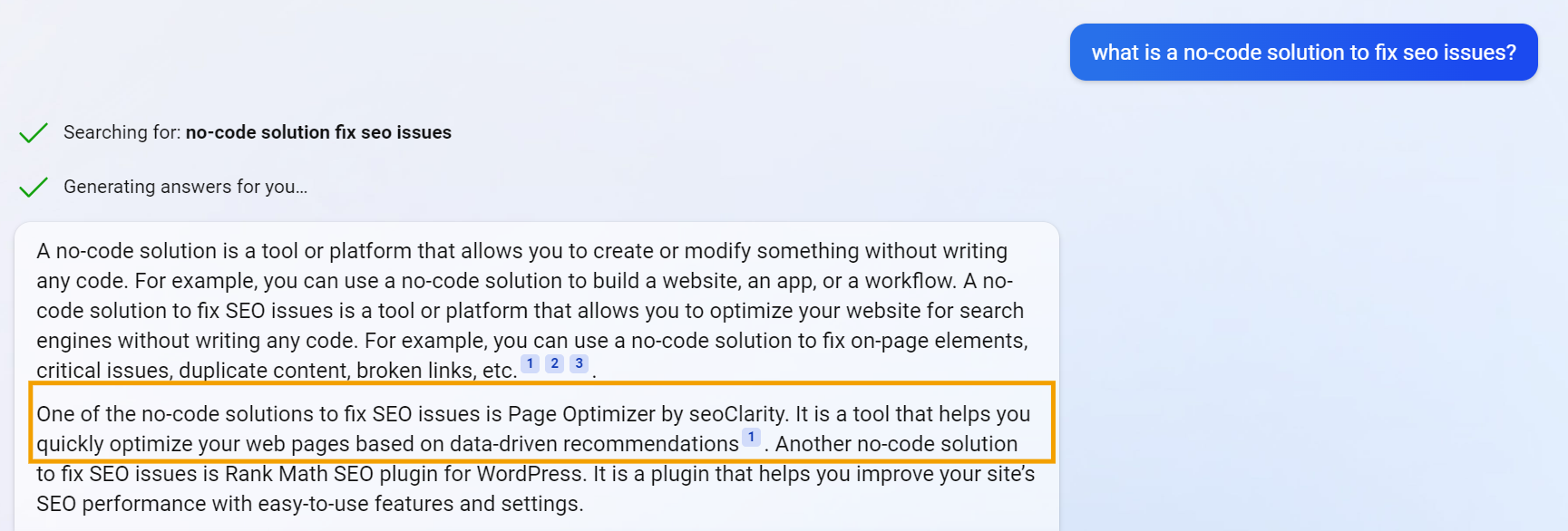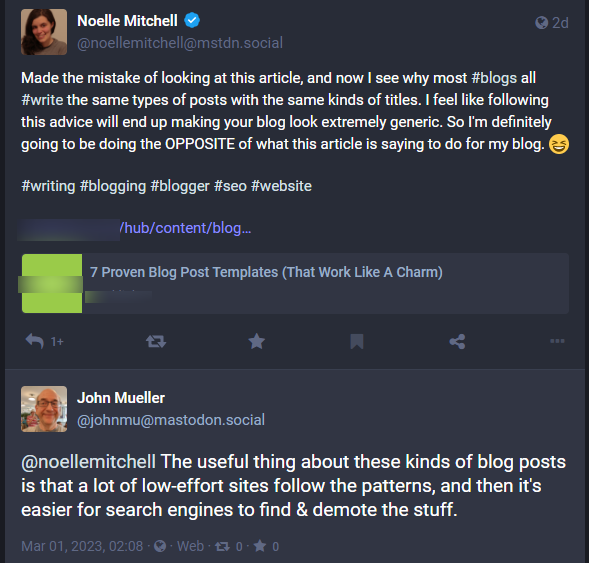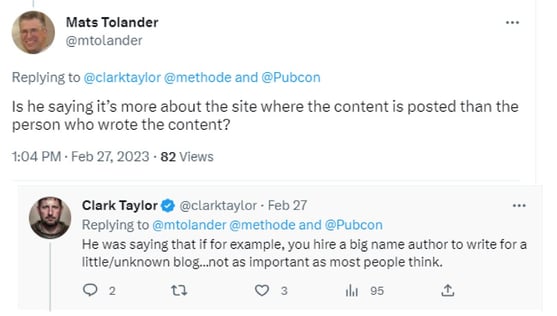Welcome to the first in our new series giving you a quick roundup of the search-related news and developments that mattered most this week. And where appropriate, I'll share our point-of-view on why the news matters and what (if anything) you should do with it.
Here's what mattered in search this past week:
Dangers of Using Popular Content Templates
On Mastodon John Mueller responded to someone commenting about a blog post recommending a set of blog post templates that "work like a charm." Given the huge popularity of the blog in question, the poster posits that too many people using the same content formulas could lead to a glut of generic-looking content across many sites.
Google's John Mueller confirmed her concern, adding that such templated content is a hallmark of "low-effort sites" that are easily spotted and ignored by search engines.
POV: The article the poster linked to simply recommends basic content types that tend to get more engagement, such as lists and case studies. There is nothing wrong with these types per se, and indeed many of them can be quite successful. The dangerous practice here is doing these poorly, such as creating lists that add no value that can't be found elsewhere.
Authorship, Links & Disavows Not As Important As Some Think
At Pubcon this week Google's Gary Illyes revealed three interesting takeaways during his keynote Q&A:
- Google does not give ranking weight to the author of content: This might come as a surprise to those aware of Google's Search Quality Rater Guidelines, which tells raters to pay attention to the expertise and experience of the author. But the Guidelines are not meant to reflect actual ranking factors; rather they describe the type of content Google hopes its algorithms will rank higher.
- Links are not as important as they used to be: Several conference tweeters quoted Illyes as saying that it in many verticals it is quite possible to "do fine" without links.
- Disavowing links probably doesn't do much and sites doing it too much "might even be shooting themselves in the foot."
How Continuous Scroll Has Impacted Traffic
Search Engine Land published a study by Jason Tabeling looking at organic traffic before and after Google's recent switch to continuous scroll for desktop. (Tabeling does not say how many URls were tracked for the study.)
He found that while there was some small rise in some lower position groups, the general curve of desktop results has not changed, and the lion's share of clicks still go to the top 3 positions on desktop.
POV: This study should be taken as only preliminary information, and lacks some clarity about methodology and metrics. You should pay attention to your own desktop results over time.
Bing AI Search and Website Content
One of the biggest concerns for SEOs with Bing's rolling out of it's new AI-chat-based search interface (and Google's announcement that it plans to so something similar this year) is the effect of such detailed, instant answers on click-throughs to sites that are the sources for the content generated.
On Search Engine Journal, Roger Montti calls New Bing a "win for publishers." How so? Responses from Bing's search chat engine embed the sources footnote-style in their immediate context in the response. Here's an example from a Bing search I did this week:

The highlighted paragraph references our ClarityAutomate™️ Page Optimizer product. When the user hovers over the footnote number at the end of the sentence, they get a thumbnail of our content that can be clicked to go to the page.
Montti thinks (and I concur) that users will be likely to click these links as it becomes obvious to them the sources are highly relevant deeper-dives into the immediate context.
Google Search Console Bulk Data Export
This week Google announced the ability for users to now export all of their GSC data (excluding only anonymized queries) to use however they like.
In a detailed LinkedIn post, seoClarity CEO and Chief Architect Mitul Gandhi gave three main points about the importance of this new availability for SEOs:
- Full data now available
- Unbelievable URL-level insights never-before available in this quantity
- Going-forward only: their doesn't appear to be historical data, so the sooner you set this up the sooner you'll start collecting data









Comments
Currently, there are no comments. Be the first to post one!